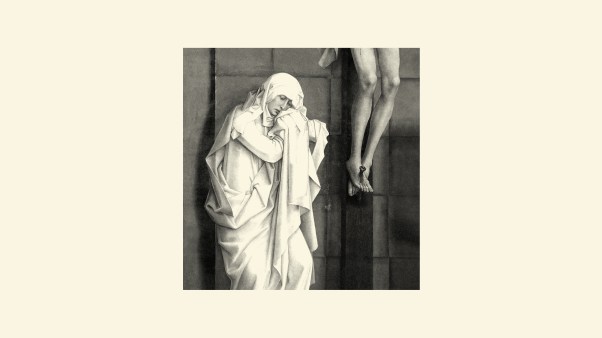From the extensive publicity attending the publication of the Revised Standard Version in 1951, one might easily gain the impression that the controversy which “modern scholarship” has precipitated over the Bible is of recent origin. The very word “modern” seems to suggest it. The sponsors of RSV state it has been designed to “embody the best results of modern scholarship as to the meaning of the Scriptures.”
The recent publication of a large number of books on the subject of biblical criticism gives further support to the presumption that the controversy is something new. J. K. S. Reid’s The Authority of Scripture, Edward J. Young’s Thy Word Is Truth, Wick Broomall’s Biblical Criticism, John W. Walvoord’s Inspiration and Interpretation, Dom Celestin Charlier’s Christian Approach to the Bible (English translation), the second volume of Karl Barth’s Church Dogmatics: the Doctrine of the Word of God (English translation), and Revelation and the Bible (Carl F. H. Henry, ed.), have all appeared in the last five years, most of them between 1957 and 1959. These authors engage in lively discussion of all aspects of the subject, some taking positions for, and some against it.
Conferences are being held in many places, lectures in vast numbers are being given, on the Bible, its nature, its inspiration, its authority—all these, as though important new discoveries, have made “the controversy over the Bible” the subject of the hour.
Enthusiasts for a so-called “new approach” to the Bible disparage the older view of Scripture as “a superstitious veneration of the Bible” and as “bibliolatry”; they denounce verbal inspiration, ridicule the doctrine of inerrancy, and emphasize the human element in the Scriptures at the expense of the divine.
CURRENT CRITICAL ASSERTIONS
There is not on every hand a denial of the Bible as the Word of God, but frequent assertions that it contains the Word of God. This is a statement that no Christian would deny. But the statement that the Bible contains the Word of God is usually intended to displace the age-old assertion that the Bible is the Word of God. And there is precisely where a large part of the controversy lies.
At current conferences on the Bible one hears about “errors in chronology, in history, in quotations,” and of “errors in the original sources” from which the autographs were composed. Questions of canon, composite authorship, and editorial compilation are raised.
Not infrequently one hears that since “revelation” involves a communication between persons, no revelation is valid unless there has been a “response” on the part of the person to whom the Revealer (God) has chosen to reveal himself. This is a facet of the “I-Thou” concept of neo-orthodoxy which we are meeting in ever-increasing frequency in theological literature. It appears in varying degrees of intensity, but whatever its form it always adds up to a stout denial of all objective means of ascertaining the truths of revelation or the Bible, and a firm insistence on their subjective authentication.
In this view, also, the words of the Bible are not themselves the Word of God, but may be the framework through which the Word of God is communicated to man. Whether the words of the Bible are ever the Word of God depends not on the words themselves, or even upon God as Author, but rather on the responsiveness of the hearer. They may be the Word of God to one man, but may not be the Word of God to another, unless he responds by what Professor Emil Brunner calls “the interior word of faith.” This concept has been well stated by Professor Otto A. Piper: “The Bible is the Word of God because and when God uses it as a means of grace to make me (italics mine) believe in his saving purpose” (“How I Study My Bible,” in The Christian Century, Vol. LXIII, No. 10, Mar. 6, 1946, p. 301).
It may seem that many of these ideas are new; that whatever controversies there may have been about the Bible in the past, this present one is different; that the questions and discussions of the present day signify a new controversy, and do not represent merely a renewal or continuation of old issues.
SHADOWS OF THE PAST
But in this connection it may be useful to recall that over a century ago William Lee, in his lectures on The Inspiration of Holy Scripture (designed to establish “the infallible certainty, the indisputable authority, the perfect and entire truthfulness” of each and all the parts of Holy Scripture), found occasion, even then, to discuss the significance of the change in the old formula that “the Bible is the Word of God” to “the Bible contains the Word of God.” And among the objections to the traditional doctrine of inspiration which Lee found it necessary to answer were such “modern” allegations as “the Bible contains errors in matters of science and history, and errors in quotations from and the interpretation of the Old Testament on the part of New Testament writers.”
In 1879 Dr. Benjamin B. Warfield asked whether the doctrine of plenary inspiration of the New Testament was endangered by “the assured results of modern biblical criticism.” The occasion for his question was his induction into the Chair of New Testament Literature and Exegesis at Western Theological Seminary. In his inaugural address on that occasion he stated what he conceived to be the Church doctrine of inspiration, as follows: “Inspiration is that extra, supernatural influence (or, passively, the result of it) exerted by the Holy Ghost on the writers of our sacred books, by which their words were rendered also the words of God, and therefore, perfecty infallible.” In answer to the question about “the assured results of modern biblical criticism,” he said: “Modern biblical criticism has not disproved the authenticity of a single book of our New Testament.”
DEFECTION FROM TRADITIONAL VIEW
The closing years of the last century were full of controversy about the Bible. They were the days of the trials of Professor Charles A. Briggs and Professor Henry P. Smith for heresies in their teachings on these subjects. Dr. Briggs spoke of barriers thrown up by men to the divine authority of the Scriptures. Among these barriers he specified, superstition, verbal inspiration, authenticity, inerrancy, and minute predictions.
Professor William Henry Green and Professor Francis L. Patton, both of Princeton, were prominent leaders in the General Assemblies of the Presbyterian Church which took decisive action in these trials. Their views of Scripture are well known. No doubt they heartily approved the following strong deliverance proclaimed by the Portland General Assembly in 1892:
The General Assembly would remind all under its care that it is a fundamental doctrine that the Old and New Testaments are the inspired and infallible Word of God. Our Church holds that the inspired Word as it came from God is without error. The assertion of the contrary cannot but shake the confidence of the people in the sacred books. All who enter office in our Church solemnly profess to receive them as the only infallible rule of faith and practice. If they change their belief on this point, Christian honor demands that they should withdraw from our ministry.
But in spite of the Assembly a different view of Scripture was widely held. Even though the Assembly forbade it, Dr. Briggs continued to teach in Union Theological Seminary. The Assembly of 1895 warned all the churches in its jurisdiction that it would be unsafe and unwise to call as pastors men who had graduated from that seminary. Nevertheless, the views of the Bible held by Dr. Briggs, views also taught by other teachers in that school which withdrew from the Presbyterian Church in order to keep him on her faculty, have continued to infiltrate the Presbyterian Church. That is perhaps no longer true. The necessity to “infiltrate” such views has ceased. For a long time they have been perfectly “at home” there. In recent years, not even the seminary of Hodge and Warfield and Green and Patton has opposed them!
In other quarters, the view that the Bible contains the Word of God, together with the concurrent denials of plenary inspiration and inerrancy, suffered no temporary setback, as it did in the Presbyterian Church. The last years of the nineteenth century were also marked by the famous Andover Case.
THE ANDOVER CASE
The Andover Case, it may be recalled, involved a lawsuit brought in the civil courts against the trustees of Andover Theological Seminary. The plaintiffs were representatives of the founders and benefactors of the school who had tied their gifts to orthodoxy. They alleged that at the time of their suit several members of the faculty, including Professor Egbert C. Smyth, were no longer orthodox, but were teaching liberal views of the Bible and of the Catechism.
The liberals won the case, even though it cost Andover most of her students. In the years following the Civil War the average student enrollment was nearly one hundred. After the trial, the number of students hardly exceeded the number of professors. Be that as it may, the Andover Case was a triumph for those who held views of the Bible which, though current today, were also current in 1890.
Such views of the Bible, however, were not new even in 1890! In a letter written in 1894 to Mr. Thomas McDougall of Cincinnati in connection with the Briggs trial, the Reverend K. Tietema, a Hollander, then living in Greenleafton, Minnesota, wrote:
My reflection begins about 1848. In that time we had in the Netherlands all the selfsame negations and perversions of the Bible, as now is the case in America. It has taken 40 years to get them across the ocean.… As a boy of twelve (1848) I was for a time attendant of a question school, where the pastor, in all earnest, declared that the Bible was not God’s Word, but that the Word of God was in the Bible.…
The Narrative of creation, the deluge, the passage through the Red Sea, the wandering in the wilderness, Jordan, the prayer of Joshua, and many other biblical communications were legends, myths, or allegories.… But what need, they told us: ‘The Word of God is in the Bible—and easy to find.’ Thus God in company with tale-tellers, legendarists, yea, with liars and impostors!…
I think it very dangerous to introduce such old novelties in our Church … and rake up … (such) … shabby and worn-out critical criticisms, and peddle it out for the ne plus ultra of wisdom.
(Tietema’s letter is printed in the appendix of the published copy of Thomas McDougall’s Address on the Work of the 106th General Assembly of the Presbyterian Church in the United States of America, to the Presbyterian Ministerial Association of Cincinnati, June 11, 1894.)
THE OLD BECOMES NEW
The concept that “response” is necessary to authenticate revelation is an idea at least as old as Thomas Paine, who, in 1794, wrote in his Age of Reason:
Revelation … can only be applied to something which God reveals of His will to man.… The thing so revealed is revelation to the person only to whom it is made.… His account of it to another person is not revelation; and whoever puts faith in that account, puts it in the man from whom the account comes.… There is no possible criterion whereby to judge the truth of what he tells.… When it is revealed to me, I will believe it to be a revelation; but it is not, and cannot be incumbent upon me to believe in revelation before; neither is it proper that I should take the word of man as the Word of God, and put man in the place of God.
Even in that day Paine’s strangely “modern” neo-orthodox view of revelation produced considerable controversy. Perhaps most noteworthy of the rejoinders which it provoked was the Reverend Jeremy Belknap’s Dissertations on the Character, Death, and Resurrection of Jesus Christ. As Conrad Wright says in his Beginnings of Unitarianism in America, Belknap’s treatise was designed especially “to refute Paine’s argument that revelation is valid only for the person who receives it directly; for anyone else it is mere hearsay.”
PAINE VS. BELKNAP
Belknap made a great defense of the foundation on which the Christian faith rests. He pointed out that “we rely all the time on the testimony of others as to the things which we have not ourselves observed.” Wright says: “The crucial questions are these: Is the testimony credible? Is the point to be proved inherently unreasonable? It is surely rational, he said, ‘to admit that degree of moral evidence, which is founded on credible testimony.’ In this case we rely on the testimony of Jesus Christ and his apostles.”
But even more to the point, Wright continues: “Belknap pointed out that Paine himself admitted Jesus Christ to possess an amiable and pure character. The sources of our knowledge of Christ’s character are also the sources of our knowledge of his divine mission. It is vain, therefore, for Paine to accept the virtuous character of the man and reject the truth of his miracles and resurrection. ‘They rest on the same evidence and must stand or fall together.’ A man whom Paine himself described as virtuous and good would not have appealed to his miracles and resurrection as ‘proofs of his divine mission, unless they had been realities.’ In short, we have as good evidence for the miracles and resurrection as for any event in history; they were facts ‘seen and known, witnessed and believed, by persons who could not have mistaken the fact; by numbers, by great numbers of them.’ On this firm foundation rests the whole structure of Christian faith.”
But Thomas Paine was not alone in wanting a personal word from God to certify His revelation. Students of Ralph Waldo Emerson have noted the same subjectivism in his theology. He said, for example: “Men make their religion a historical religion. They see God in Judea, and in Egypt, in Moses, and in Jesus, but not around them … I want a religion not recorded in a book, but flowing from all things” (Emerson’s sermon #158, cited in McGiffert’s Young Emerson Speaks, xxxv).
But the subjectivist best known by name in American theological circles, though less known by fact, because so much of his work is not yet translated into English, is Frederick Schleiermacher, the reputed “father of modern theology.” In his famous Reden über die Religion he declared: “He does not have religion who believes in a Holy Scripture, but rather he who needs no Scripture, or could make one himself” (Translation of 1st German edition, page 122).
BARTH AND SCHLEIERMACHER
Dr. Karl Barth goes to a considerable length in his Church Dogmatics to criticize Schleiermacher and to show wherein his own doctrine differs from that of the great nineteenth century liberal. But knowing Schleiermacher and his views of revelation and inspiration, one cannot fail to see that Barth’s views of the Bible, and those of the neo-orthodox theologians generally, have important precedents in the teachings of Schleiermacher and of Thomas Paine.
The present controversy over the Bible, as to whether it is in very fact the Word of God, or merely contains the Word of God, is not new.
And when one day some young man shall, and if not already surely one day some young man will, take advantage of the thought that the written Word of God is not really the Word of God unless God speaks to him therein (the depravity of his heart and the evil concupiscence of his nature deadening his ears to the voice of God, blotting out of his sight, and making inapplicable to him the written commandments of God regarding purity), and shall embark upon a life of unrepentant and persistent vice and immorality, then may it be known that this consequence of such a view of Scripture as lets the sinner go unspoken to, unchallenged in his iniquity, is also not new. For the practical, moral, and spiritual consequences of these views are not new. St. Paul once said: “Evil communications corrupt good manners” (1 Cor. 15:33).
Samuel M. Shoemaker is the author of a number of popular books and the gifted Rector of Calvary Episcopal Church in Pittsburgh. He is known for his effective leadership of laymen and his deeply spiritual approach to all vital issues.










